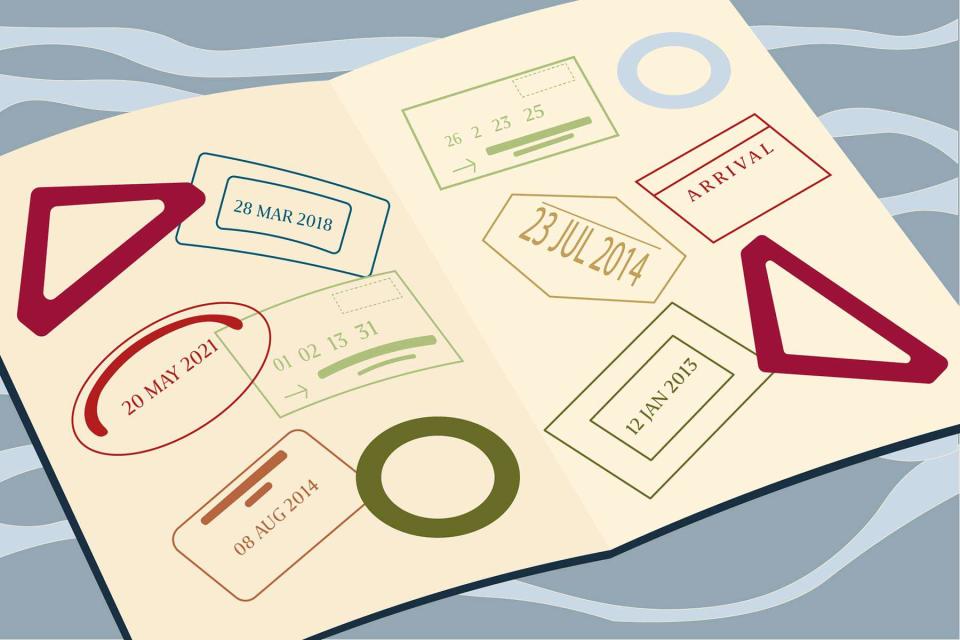You May Not Get Your Passport Stamped When Traveling to Europe Next Year — Here's Why
The European Union will be implementing a new digital system that will replace stamping passports upon arrival.

Mehroz Kapadia/Travel + Leisure
Getting your passport stamped when traveling to Europe may become a thing of the past as a new screening system upon arrival is expected to launch next year.
Twenty-eight European countries including France, Greece, and Spain are expected to adopt the European Union's new Entry/Exit System, (EES) that will replace the beloved passport stamping routine with a high-tech scanning process, an EU representative confirmed to Travel + Leisure this week.
Specifically, the EES is a digital platform that relies on the collection of biometric data such as face scans and fingerprint scans. For travelers who refuse to provide biometric data needed for the screening, they will be denied entry into the country.
The program is still in development as countries and industry partners are “continuing their preparations” towards its projected 2024 launch, the EU representative also noted to T+L. However, the EES could roll out earlier, depending on when individual countries are prepared to participate.
Travelers can follow updates on the implementation of the ESS program here.
“The main advantage of the EES is saving time," the program’s website shares. "The EES replaces passport stamping and automates border control procedures, making traveling to European countries using the EES more efficient for the traveler.”
The countries that will eventually be participating in the ESS include: Austria, Belgium, Bulgaria, Croatia, Czechia, Denmark, Estonia, Finland, France, Germany, Greece, Hungary, Iceland, Italy, Latvia, Liechtenstein, Lithuania, Luxembourg, Malta, Netherlands, Norway, Poland, Portugal, Romania, Slovakia, Slovenia, Spain, Sweden, and Switzerland.
The EES website points out that although Cyprus and Ireland are members of the European Union, a traveler's passport will still be stamped manually, for now.
The program is being developed in conjunction with the European Travel Information and Authorisation System (or ETIAS) program which will require foreign travelers to Europe to pay a small fee (€7 or $7.42) for entry to the EU.
Data gathered from the ETIAS and ESS will work together to identify a traveler's potential risk, the EU representative explained to T+L.
Ahead of the major passport change, U.S. travelers were recently encouraged to renew their passports now, due to expected delays with a surge of summer travelers, passports are currently taking eight to 11 weeks for regular processing.
For more Travel & Leisure news, make sure to sign up for our newsletter!
Read the original article on Travel & Leisure.

